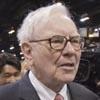Famed investor Buffettdoubles munibond stake
Bloomberg

refid:11830461 ilişkili resim dosyası
Warren Buffett’s Berkshire Hathaway doubled its municipal-bond holdings in nine months amid record swings in the value of the securities that the billionaire investor labeled "unthinkable."
Berkshire increased its investment in debt issued by state and local governments to $4.05 billion as of March 31 from $2.05 billion on June 30, 2008, the company said in regulatory filings. Berkshire added $1.09 billion to the bet in last year’s third quarter and $985 million in the first three months of 2009. Buffett’s firm bought municipal bonds while scaling back stock purchases and as its cash position fell to the lowest level in five years. As Berkshire was adding to the stake, hedge funds, mutual funds and other institutions that use borrowed money to boost returns were forced to sell holdings to meet margin calls and investor withdrawals, especially after Lehman Brothers Holdings collapsed in September.
"Savvy investors picked up some good bargains," said Janet Tavakoli, author of "Dear Mr. Buffett" and founder of Tavakoli Structured Finance. "There have been some excellent bargains for people like Warren Buffett, who understands that the principles of value investing don’t change, no matter the circumstances."
Municipal bonds had their biggest monthly loss of 5.1 percent in September 2008, based on the Municipal Master Index created by Merrill Lynch. Issuers put off selling new debt as borrowing costs jumped. Yields on the highest quality 10-year tax-exempt debt soared to a record two times the rate of comparable-maturity U.S. Treasuries in December, according to data compiled by Bloomberg.
Overpricing risk
"The investment world has gone from underpricing risk to overpricing it," Buffett wrote in his annual letter to shareholders in February. "A few years ago, it would have seemed unthinkable that yields like today’s could have been obtained on good-grade municipal or corporate bonds even while risk-free governments offered near-zero returns on short-term bonds."
Buffett, 78, is ranked the world’s second-richest man by Forbes magazine. He transformed Berkshire from a failing textile maker into an enterprise with businesses ranging from ice cream and underwear to corporate-jet leasing.
The chief executive officer and biggest shareholder of Berkshire has been called the world’s greatest investor for his strategy of being "greedy when others are fearful," and buying out-of-favor securities.
Including gains in the value of securities, Berkshire’s municipal-bond holdings reached $4.32 billion as of March 31, the highest level since 2005. The firm typically discloses results more than a month after a quarter ends.
"People who understand our market understand that munis were extremely cheap versus the credit and performance risks in the fourth quarter," Matt Fabian, managing director at research firm Municipal Market Advisors, said in an e-mail.
Berkshire spent $624 million on equities in the first quarter, the smallest amount since at least 2005. The firm’s cash holdings, $47.1 billion as of September 2007, fell below $20 billion in April after the company posted its worst loss in at least 20 years.
Rally in local bonds
As liquidations abated and new issues dried up, state and local-government bonds began to rally early this year. The Merrill index posted its largest gain on record of 4.07 percent in January 2009.
The rally persisted as the Obama administration’s stimulus package offered aid to states and localities and eased borrowing with the Build America Bonds program, which subsidizes taxable debt sales. By last month, benchmark municipal yields had fallen back below those on taxable U.S. debt.
Berkshire may have added municipal holdings through its property and casualty insurance units, which typically seek out tax advantages provided by state and local debt, Fabian said in an interview.
So-called crossover buyers are more likely to buy municipals for potential price gains, making them prone to unwinding the trade after rallies, Fabian said.
Berkshire was buying more municipal debt even as the firm scaled back on a year-old business of insuring against possible default by the cities and states that issue the bonds. Buffett wrote in his annual letter that governments with guaranteed debt might choose to default rather than raise taxes, and said such factors aren’t priced into the cost of insuring the bonds.
Berkshire Hathaway Assurance Corp. insured $3.3 billion of new long-term municipal issues in 2008, taking almost 5 percent of the insured market in its first year of business, based on data compiled by Thomson Reuters. In the first quarter of 2009, Berkshire’s share of insured municipal new issues shrank to 3 percent on $354 million of deals, the data show.
